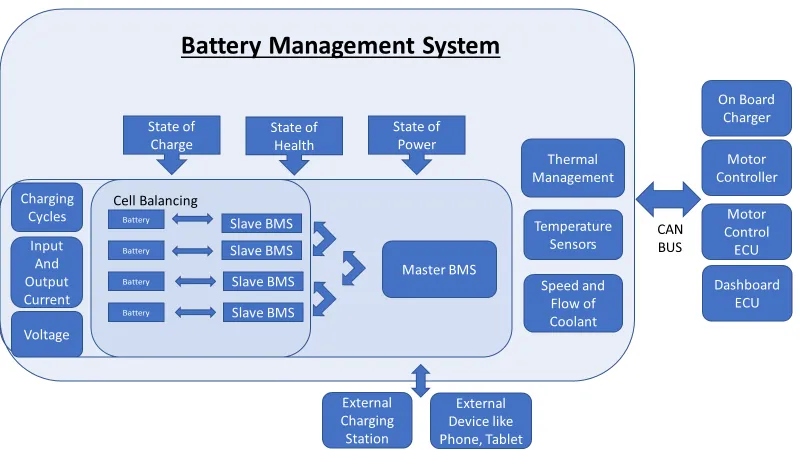Battery Management System (BMS) Market Overview:
The Battery Management System (BMS) market is a rapidly evolving landscape, critical to the advancement of battery technology and, by extension, numerous sectors reliant on energy storage solutions. From electric vehicles (EVs) to renewable energy installations, the need for efficient and reliable battery management has never been more apparent. This comprehensive exploration delves into the dynamics of the BMS market, highlighting key trends, growth drivers, technological innovations, and the challenges ahead.
Understanding Battery Management Systems (BMS)
France Battery Management System (BMS) is an electronic system that manages a rechargeable battery (cell or battery pack), ensuring its safety, prolonging its life, and maintaining its state of health through protective measures and monitoring. BMS is pivotal in applications ranging from small batteries in consumer electronics to large-scale battery packs in electric vehicles and grid storage.
Market Growth Drivers
The growth of the BMS market is propelled by several key factors:
- Expansion of the EV Market: The surge in electric vehicle adoption globally is a significant driver. BMS is crucial for the operation of EVs, ensuring battery safety, efficiency, and longevity.
- Advancements in Renewable Energy: As the world shifts towards sustainable energy sources, storage systems like batteries play a crucial role in managing intermittent energy sources such as solar and wind. BMS helps in optimizing battery usage during energy production and storage.
- Increasing Demand for High-Performance Batteries: The growing need for high-performance batteries in consumer electronics and industrial applications demands advanced BMS solutions to enhance safety and efficiency.
- Government Regulations and Policies: Stricter regulations regarding battery safety and environmental impact continue to push advancements in BMS technology.
Technological Innovations Shaping the Market
Technological advancements are at the heart of the BMS market growth. Some of the key innovations include:
- Artificial Intelligence (AI) and Machine Learning (ML): These technologies are being integrated into BMS to predict battery life, optimize charging cycles, and enhance overall efficiency.
- Wireless BMS: This technology offers reduced complexity and improved reliability in battery management systems, leading to its increased adoption, especially in automotive applications.
- Modular BMS: Flexibility and scalability in BMS design allow for its application in various battery types and sizes, adapting to specific energy requirements.
Challenges and Opportunities
While the BMS market is poised for substantial growth, there are challenges to address:
- Complexity and Cost: The development and implementation of advanced BMS solutions are complex and costly. Reducing costs while maintaining system integrity is crucial.
- Technological Standardization: As the market grows, there is a need for standardization across different technologies and applications to ensure compatibility and efficiency.
- Battery Recycling and Repurposing: End-of-life battery handling and recycling processes need integration within BMS frameworks to enhance sustainability.
Future Outlook
The future of the BMS market looks promising with several developments on the horizon:
- Integration with Internet of Things (IoT): Enhancing connectivity across systems will likely lead to smarter, more integrated BMS solutions.
- Advancements in Battery Technologies: As battery technology evolves, so too will BMS, adapting to new battery chemistries and configurations.
- Increased Market Penetration: With broader applications across various industries, BMS technologies are expected to penetrate deeper into new and existing markets.
Related Articles:
Battery Management System Companies
Conclusion
The Battery Management System market is at a pivotal junction, driven by technological advancements and increasing demand across multiple sectors. With continuous innovations and a strong market growth trajectory, the BMS industry is set to revolutionize how energy is managed and utilized in the modern world. As stakeholders continue to navigate this dynamic landscape, the emphasis on sustainability, efficiency, and safety remains paramount in shaping the future of energy storage systems.


